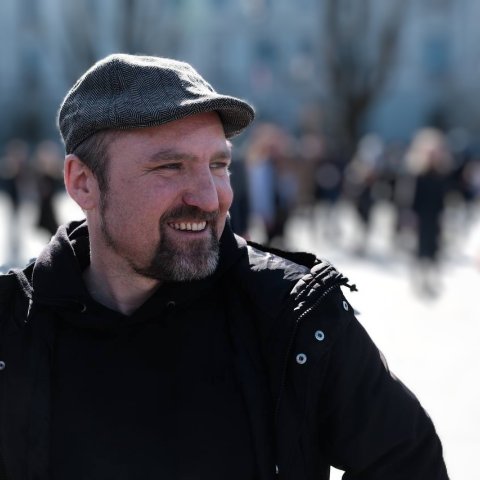Bloody middlemen
Russia continues the massive shelling of Ukraine. International sanctions were supposed to weaken the Kremlin's military capabilities. But modern equipment arrives in Russia through bypass routes.
The Buro, Verstka (a Russian publication), and the Organized Crime and Corruption Reporting Project (OCCRP) conducted a joint investigation. The investigation reveals how Western equipment used in the military sector reaches Russia, bypassing sanctions, and identifies the Belarusians responsible for these illegal shipments.
We thank CyberPartisans, OCCRP ID, Vlast, and OSINT specialist Aliaksandra Baravikova for their assistance in preparing this research.
RUSSIAN SUPPLY MAN
November 15, 2022. Russia is conducting another massive shelling of Ukrainian energy facilities. About a hundred missiles have been launched as ships, aeroplanes, and drones attack. The Ukrainian air force successfully repelled the strikes, shooting down 75 cruise missiles and 12 drones. The Ukrainians hit several pieces of equipment, including a rare Orion combat drone. Russia considers this drone to be equal to the Turkish Bayraktar.

Orion drone. Source: kronshtadt.ru
The drone can carry six 20-kilogram aerial bombs at once. It can destroy tanks, IFVs, and enemy personnel. The bombs are produced by the Moscow-based Central Scientific Research Institute of Chemistry and Mechanics (CSRICM). The institute began a technical upgrade a year before the full-scale invasion. And that is where Russian and Belarusian intermediaries came to the rescue, bringing in modern equipment and continuing to do so even as Putin's military industry came under sanctions. But first things first.

KAB-20 guided bomb unit. Source: saidpvo.lj.com
In March 2021, CSRICM announced a tender for Western equipment to modernise production. OSTEK-SMT was awarded the $2 million contract in a vote of confidence by the Institute.
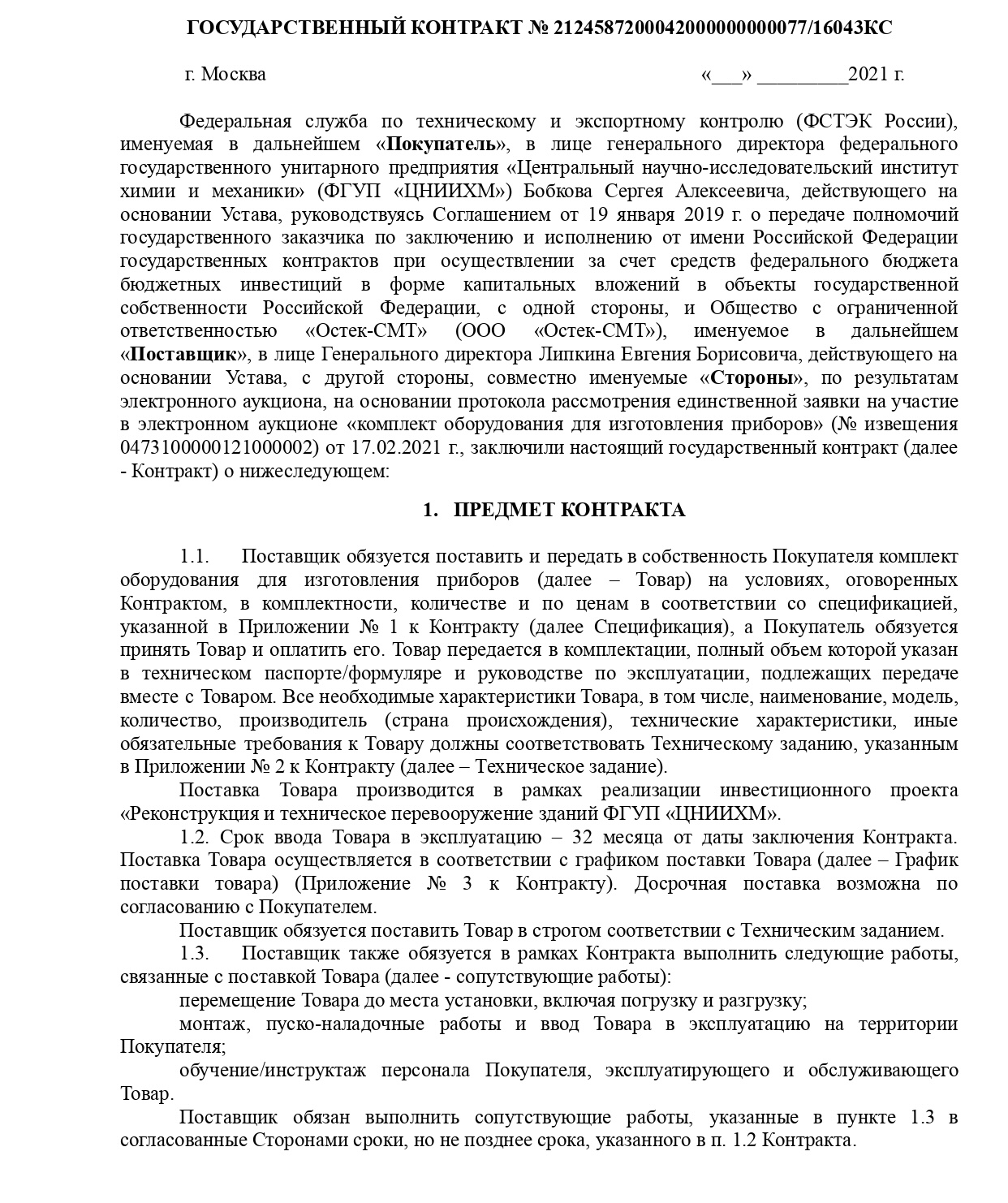
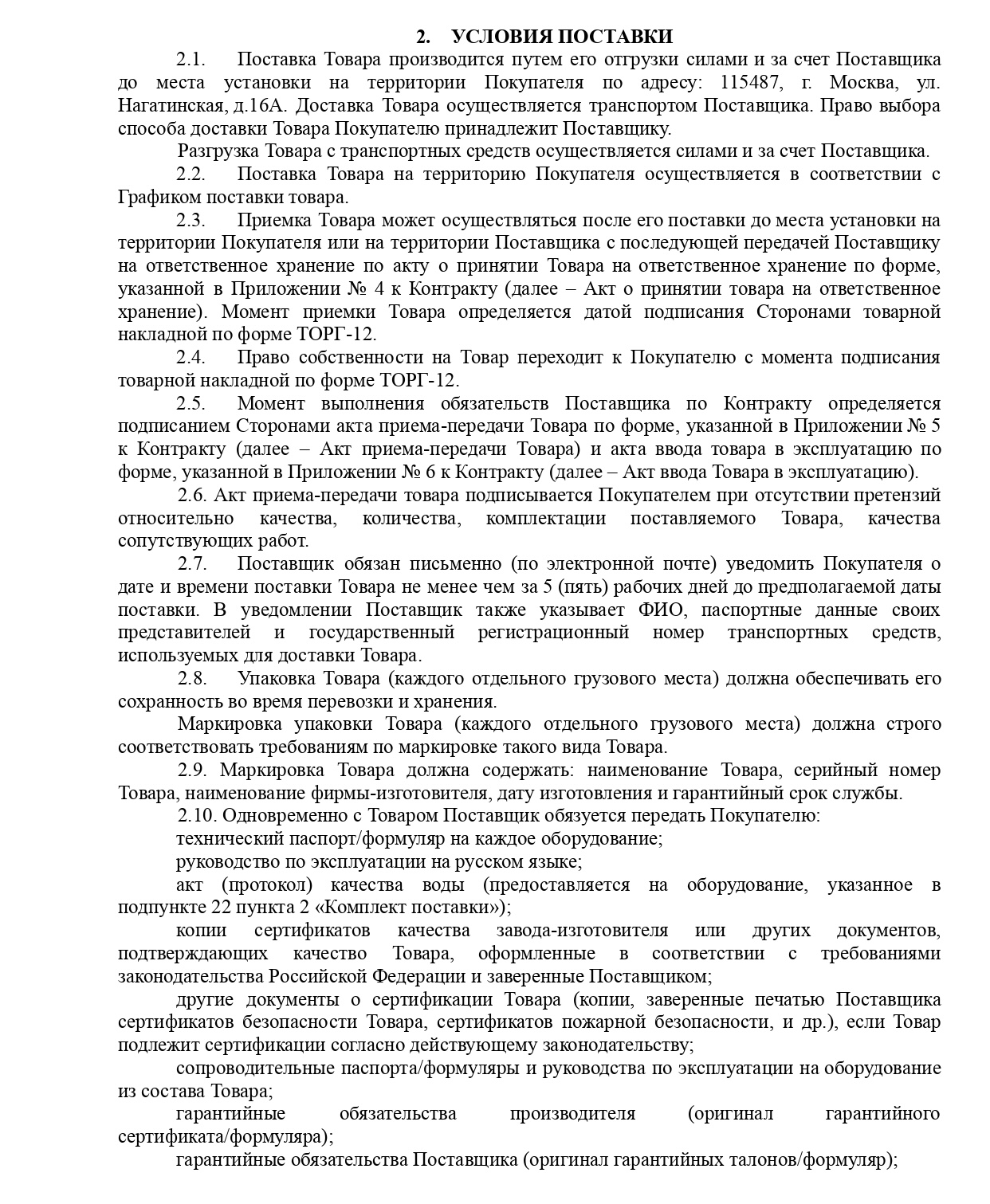
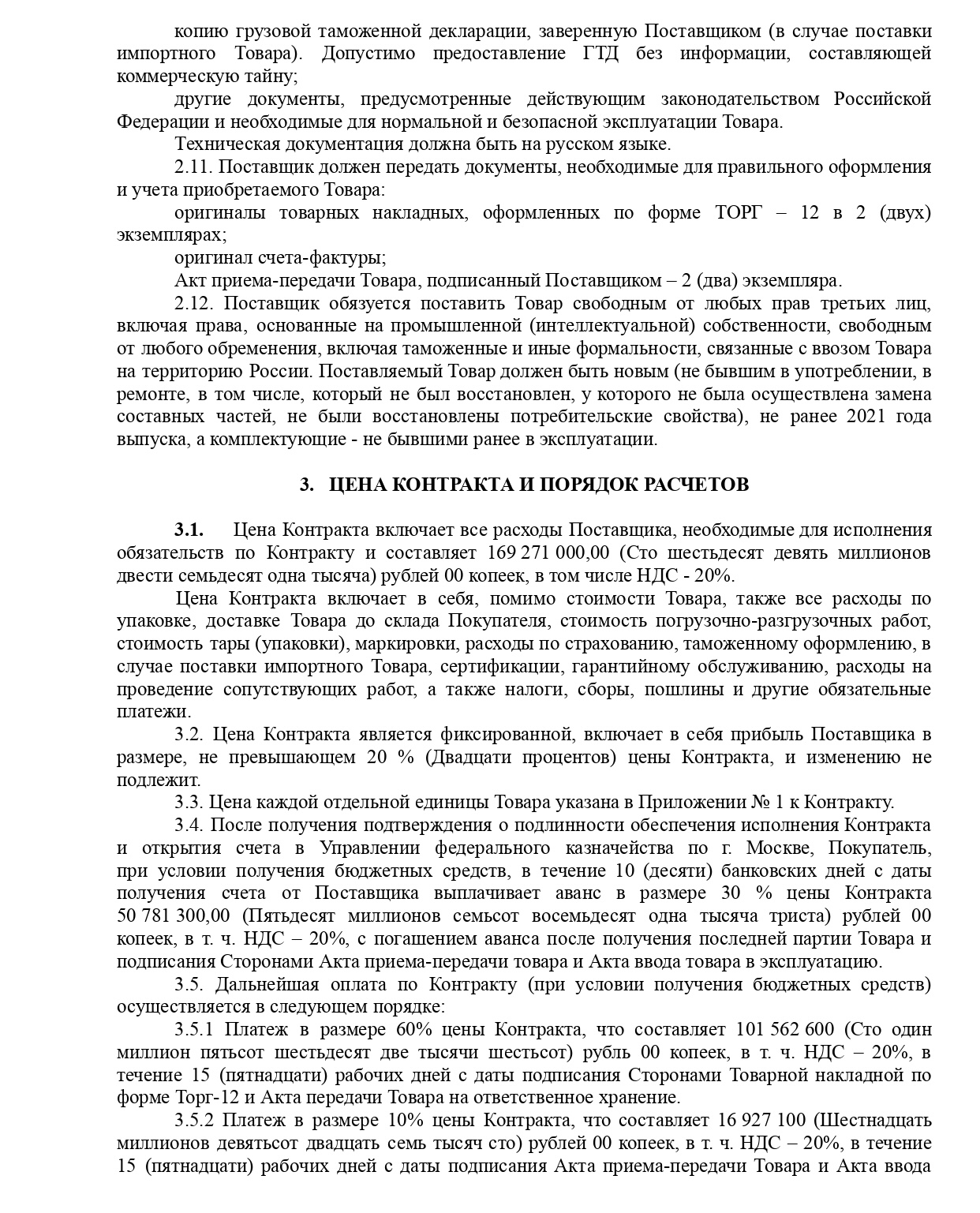
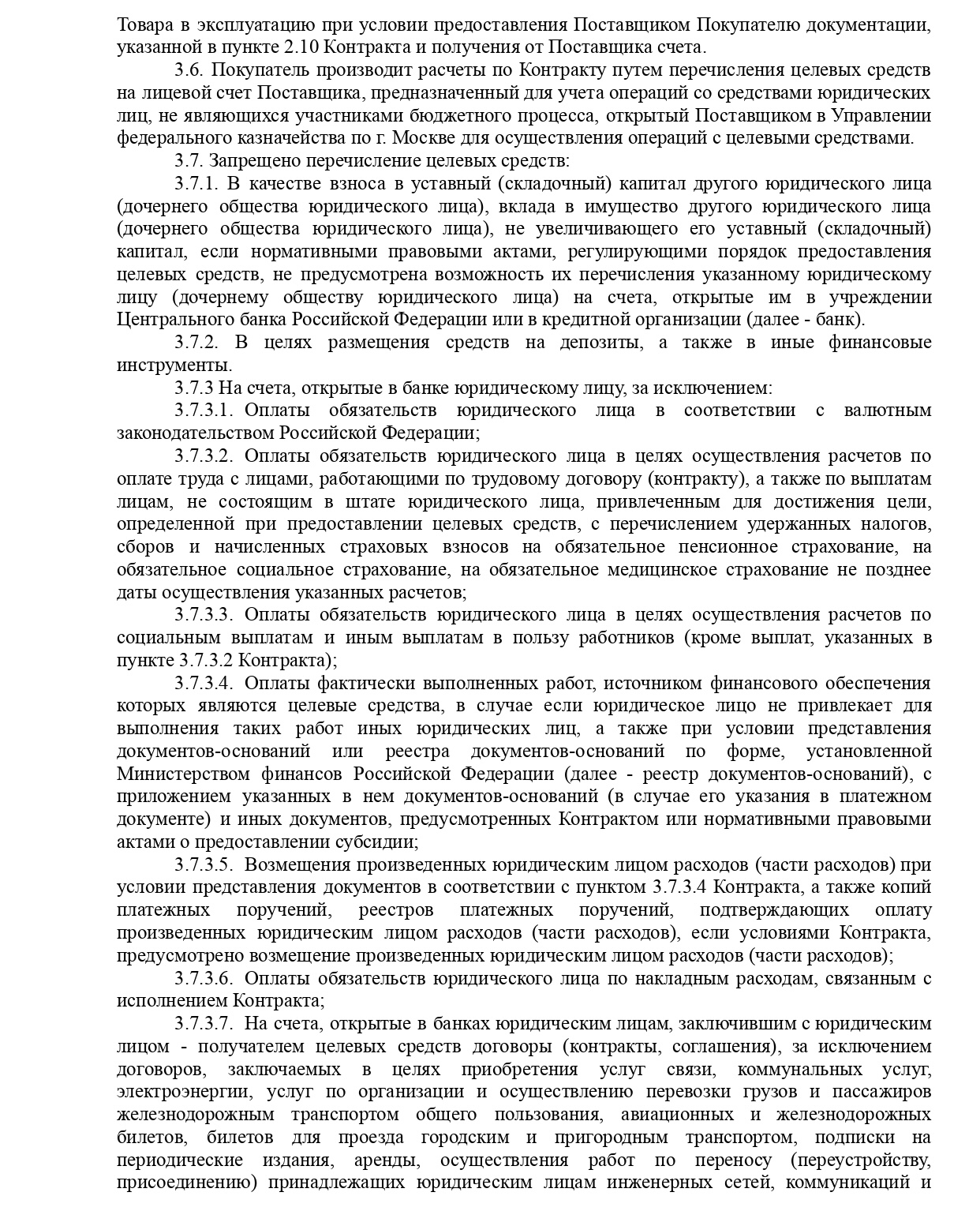
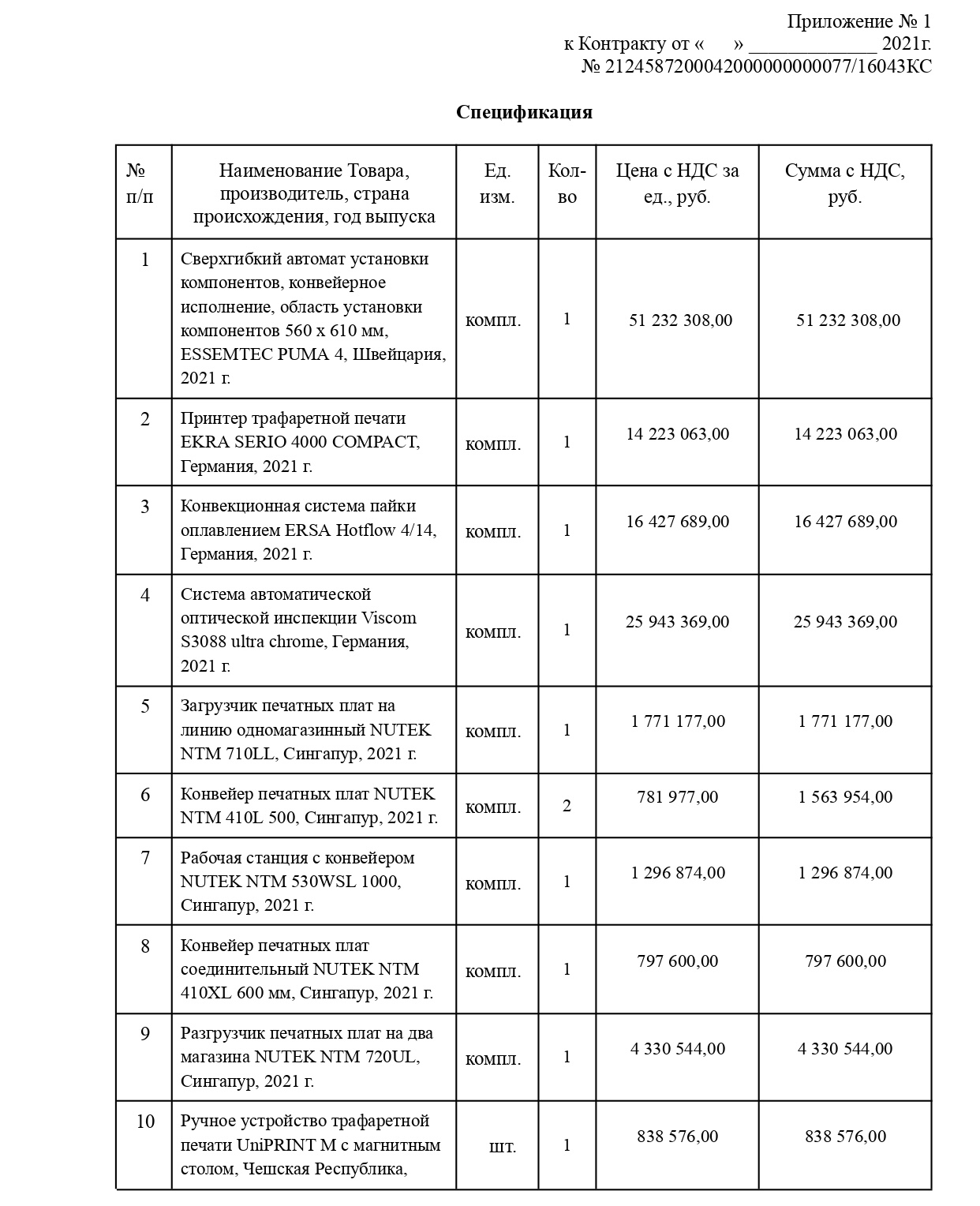
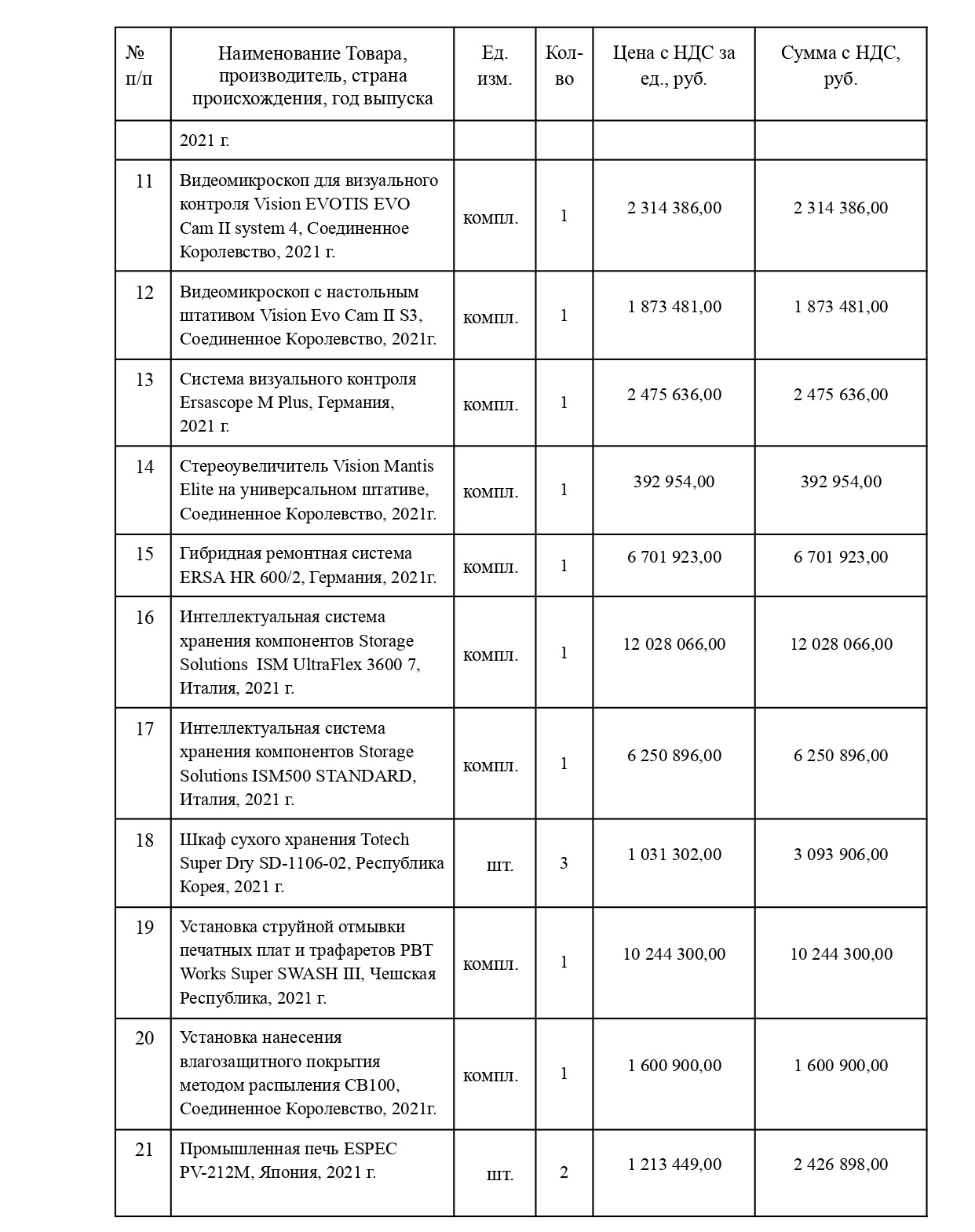
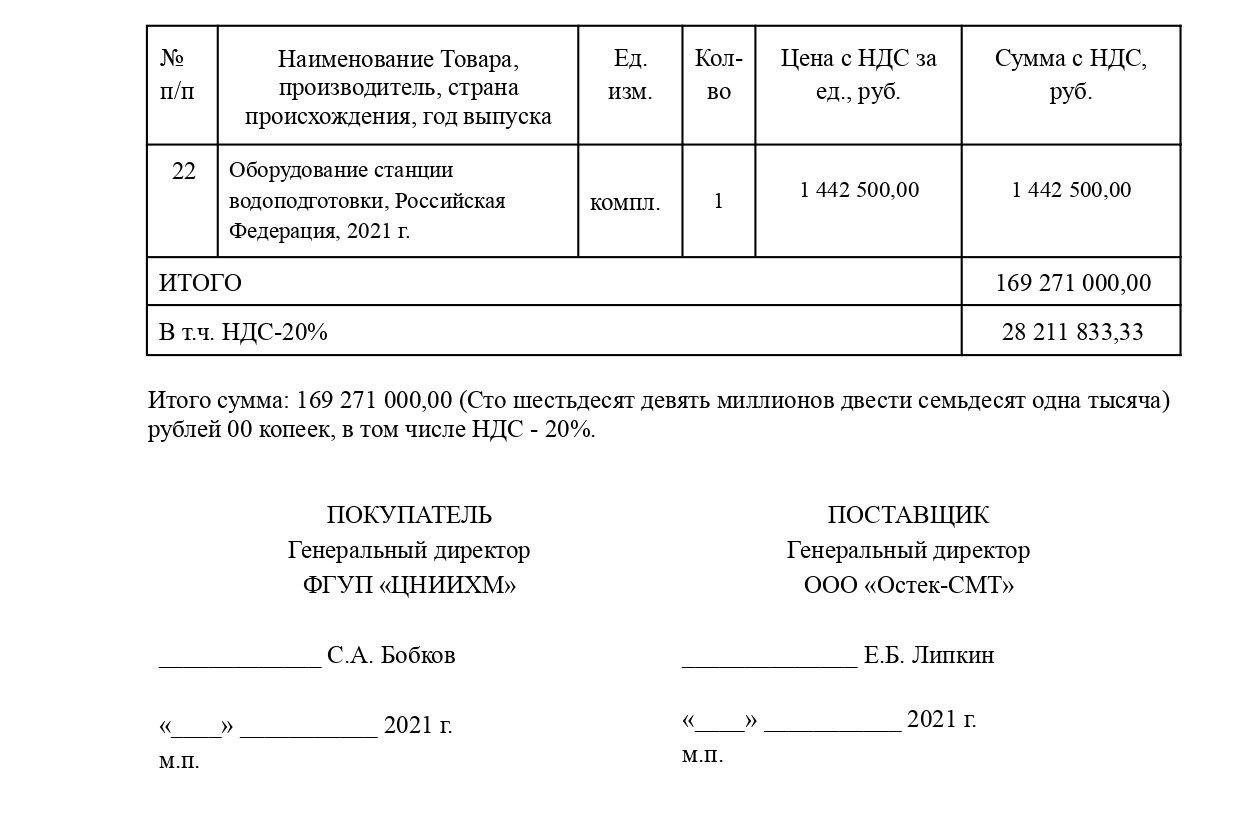
It is part of the OSTEK group of companies. Aleksandr Razorenov and Vadim Garshin, who are natives of the Russian Central Research Technological Institute, created it after the collapse of the Soviet Union. Their company has evolved from an equipment dealer to a holding company that provides modern turnkey equipment to Russian industrial enterprises.
OSTEK's business biography includes supplies of Japanese equipment to the Kolomna-based enterprise Design Bureau of Machine Building, which developed the Tochka-U and Iskander-M missile systems. Now Russia is using these weapons against Ukraine.

The Russian group of companies’ track record also includes deliveries of Korean, German and Italian equipment to the Ryazan Radio Plant. The state-owned company is one of the largest suppliers of radio communications equipment to the Russian Ministry of Defence. They also make command post vehicles for the Ministry of Internal Affairs and the Russian National Guard. At the end of 2019, OSTEK revamped an entire shop floor at this facility – creating "smart workstations" for 66 employees. The radio plant switched to a three-shift operation amidst the war in Ukraine.

OSTEK was also involved in the modernization of facilities for the Russian corporation Kometa. Following the full-scale invasion of Ukraine, this company was sanctioned by the EU for developing reconnaissance systems, reactive weapons, and missile systems for the Russian army.


The business of Aleksandr Razorenov and Vadim Garshin has expanded into a dozen companies that zealously work for the Russian military industry.
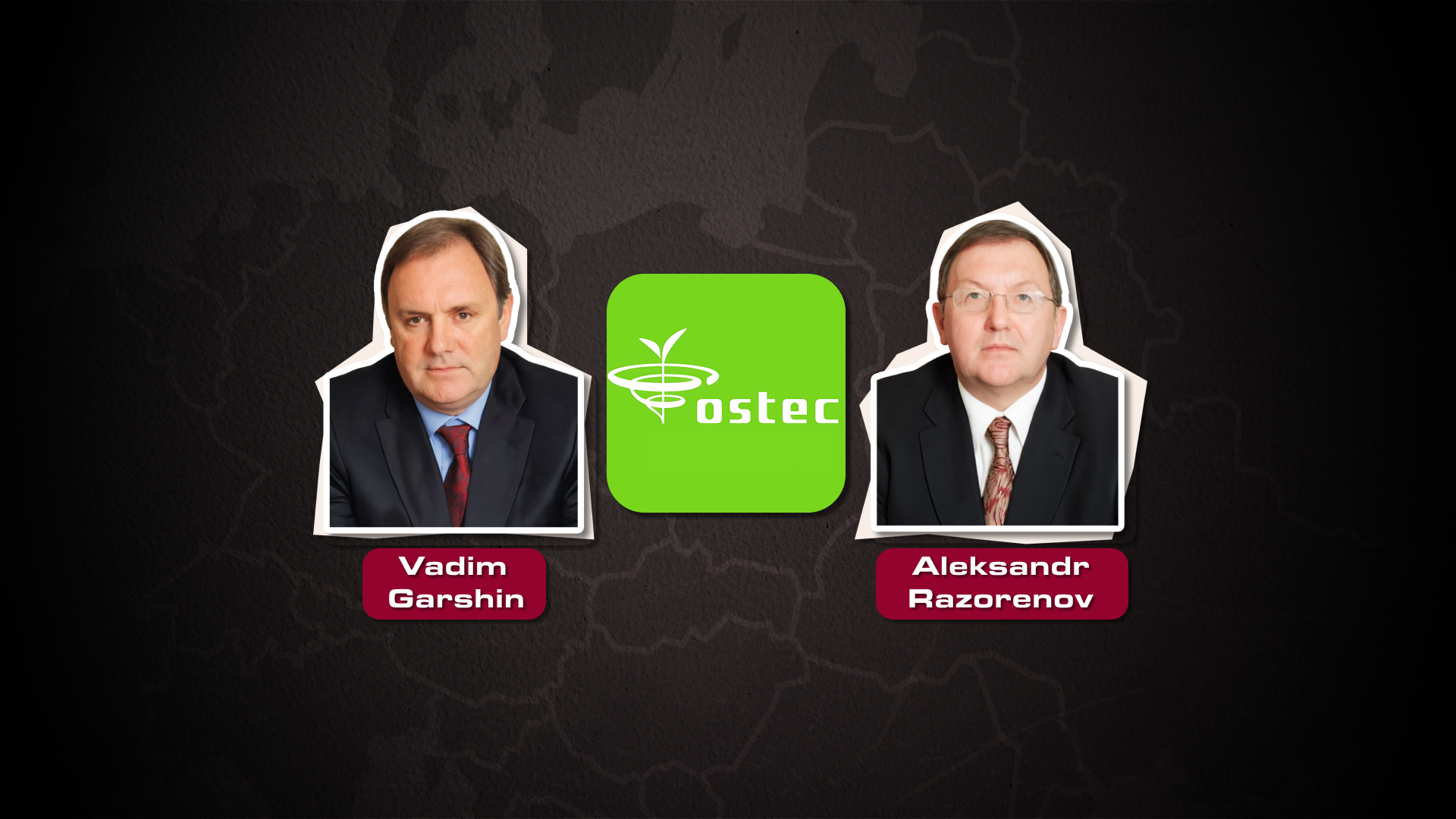


Among others, firms with Belarusian roots made it possible for OSTEK to import modern equipment for producing electronic components in Russia.
BELARUSIAN ROOTS OF RUSSIAN SUPPLIES
At first glance, OSTEK's most important freight supplier is the Polish company Inter-Trans. It is located in Sedlce near the Belarus border and is fully controlled by the German company BMA Spedition. Since the mid-90s, this logistics company has specialized in shipping cargo from the EU to CIS countries.
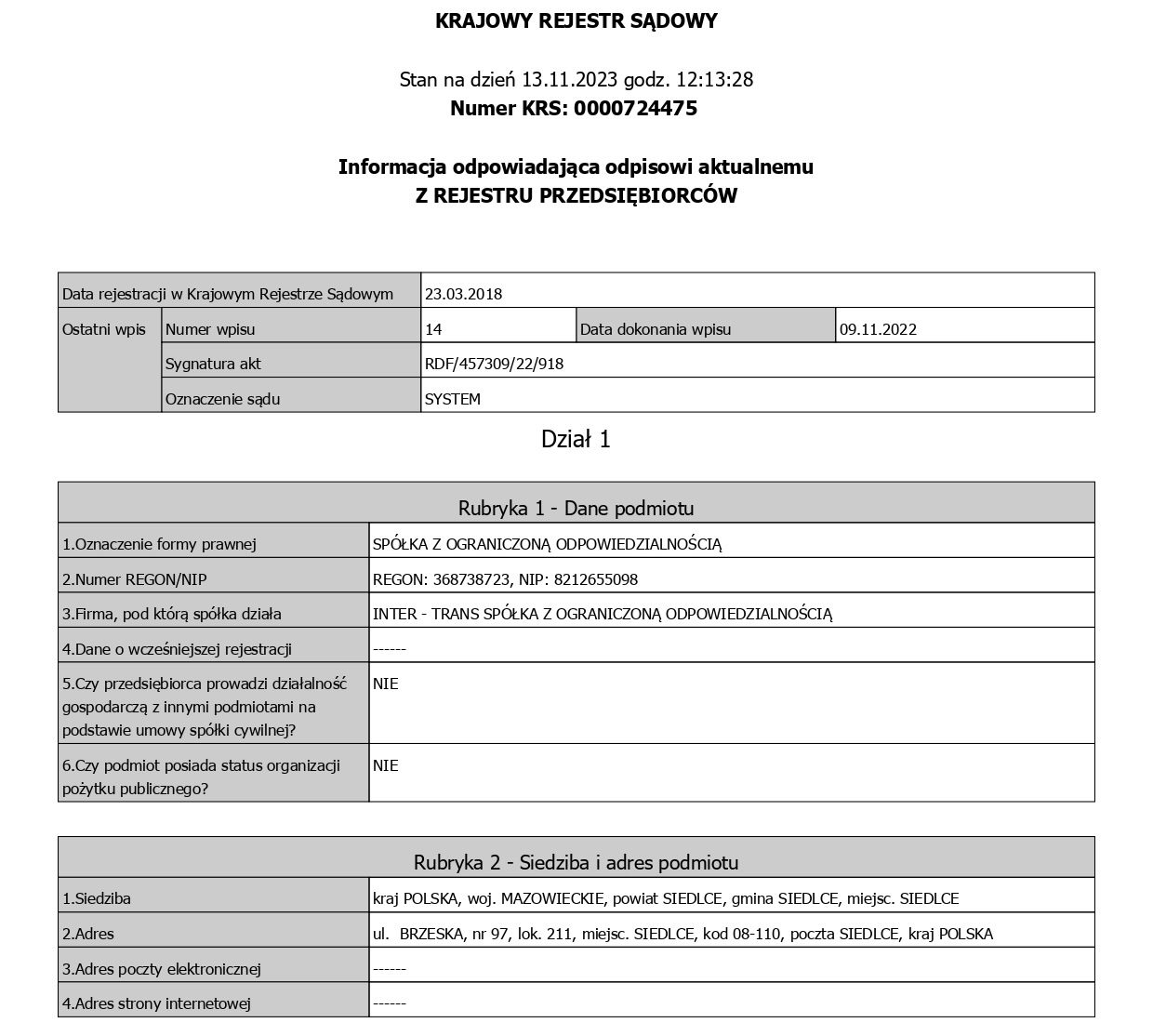
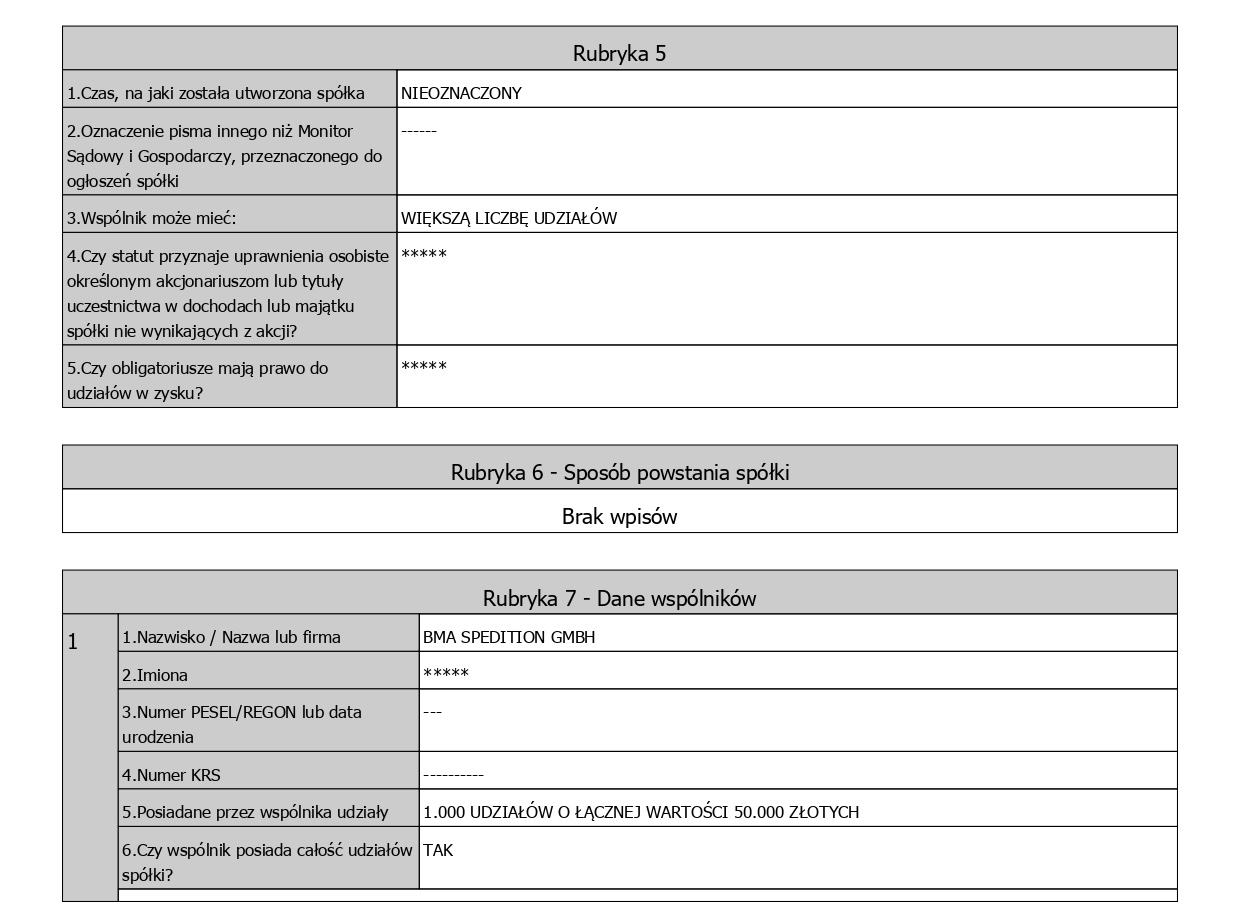
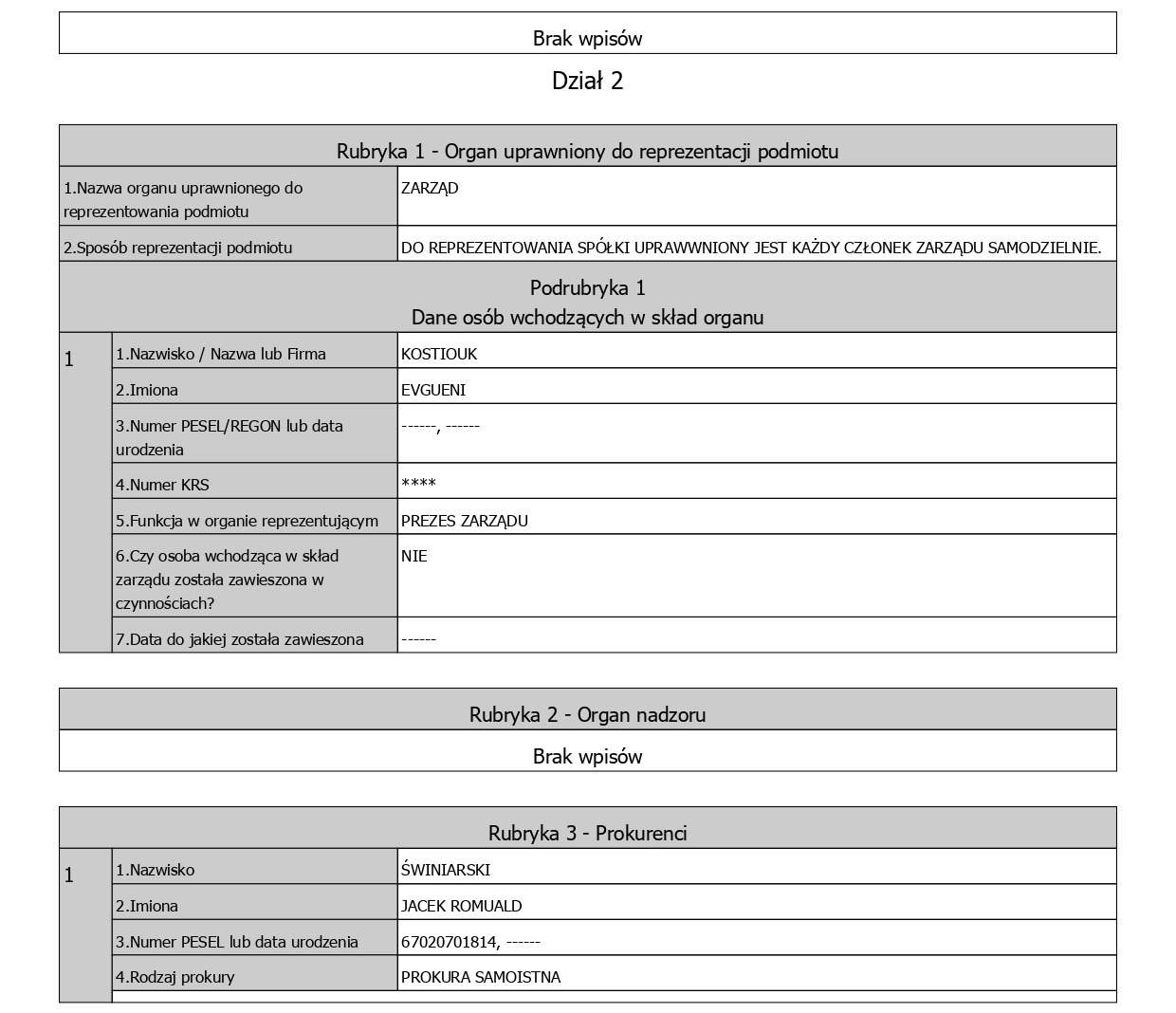
Until recently, the main owner of BMA Spedition was the Belarusian businessman Yauhen Kastsiuk with 76% of the shares. Another 13.85% belonged to BelMagistralAvtoTrans, which is controlled by the Belarusian government. Yauhen Kastsiuk himself was the director of BelMagistralAvtoTrans.
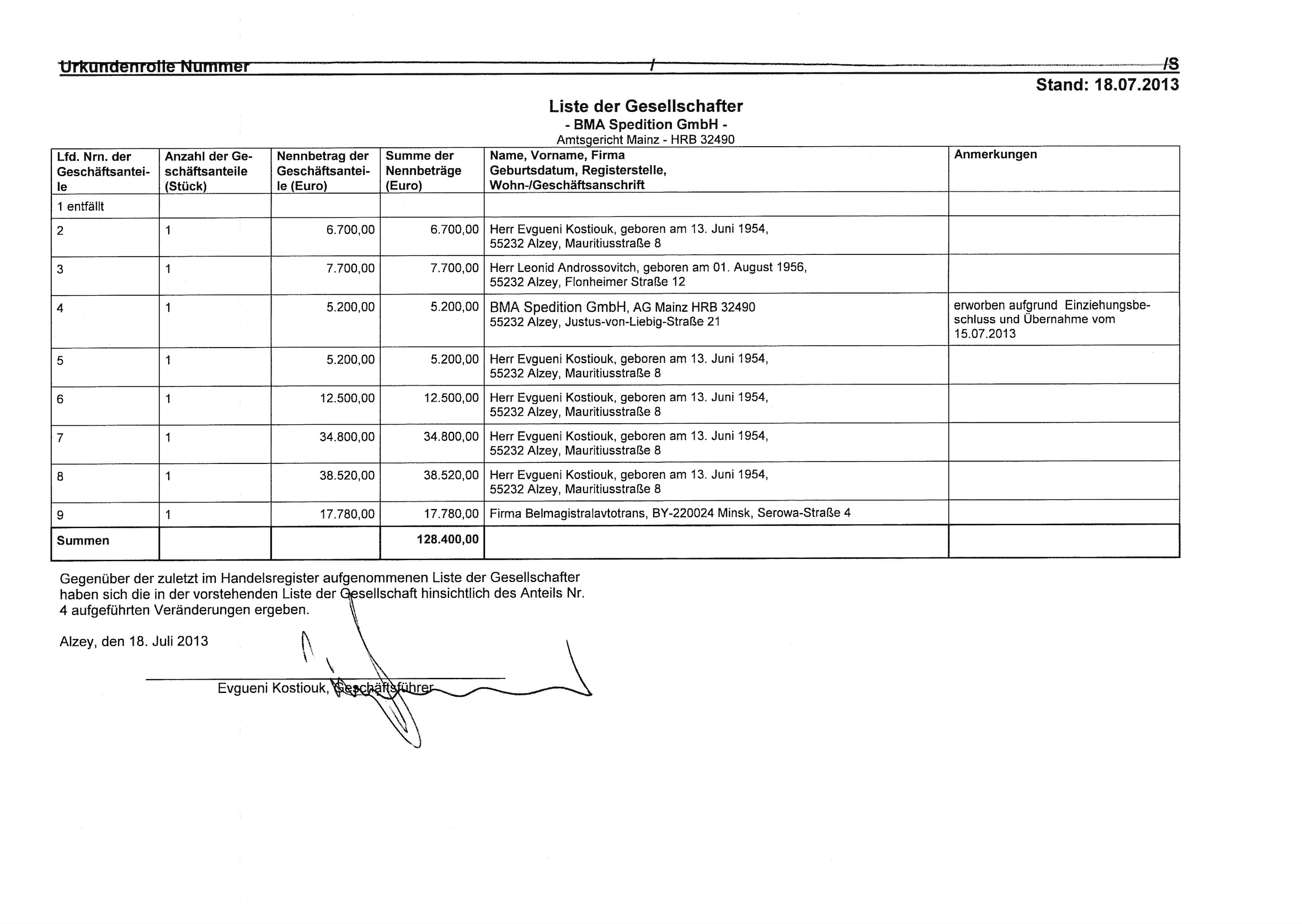
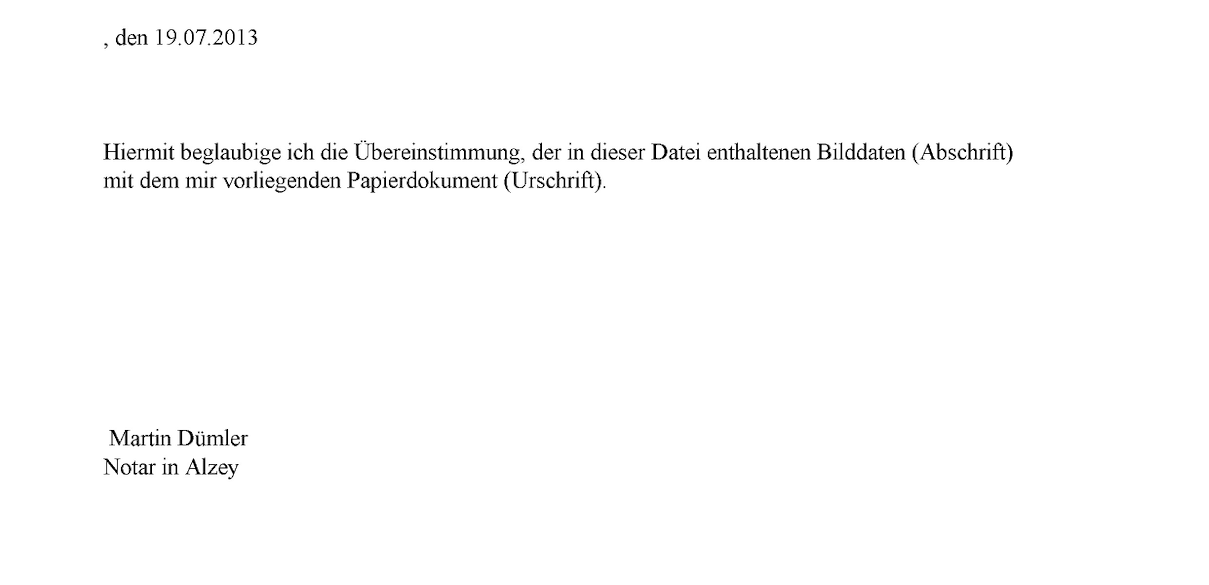
Business was booming. Companies affiliated with OSTEK group imported Western semiconductor and chip manufacturing equipment to Russia in 2021 and 2022, worth over $20 million, customs data show. About $8 million worth of these items were supplied after the start of the full-scale invasion in Ukraine. The equipment can be used in the military industry. It is declared as originating from the EU, Japan, South Korea, Singapore and the USA.
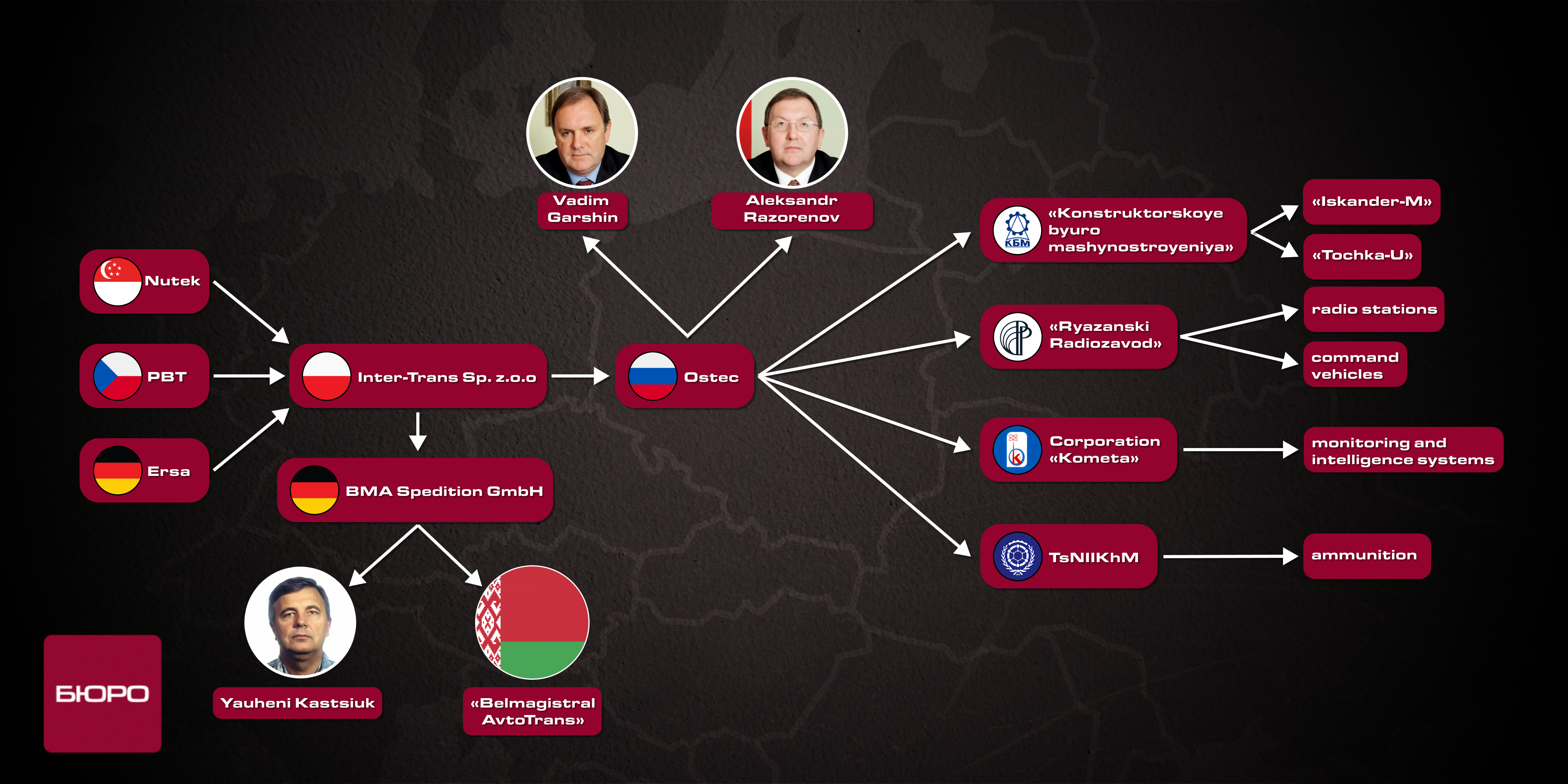
In March 2022, Singapore and South Korea limited the supply of military and dual-use goods to Russia. The sanctions became more extensive in 2023, with Japan restricting exports of dual-use goods to Russia in January. In February, the EU and US prohibited the export of semiconductor and microchip production equipment to Russia. In May, the US government additionally sanctioned the OSTEK group of companies, as well as its beneficiaries, Aleksandr Razorenov and Vadim Garshin. The US Treasury Department stated in a press release that OSTEK provided foreign microelectronics and manufacturing equipment to the Russian defence industrial complex.
Inter-Trans, BMA Spedition, and their beneficiary Yauhen Kastsiuk have been blacklisted as European accomplices of the OSTEK group of companies. According to the US government, hundreds of shipments of electronic components and other goods have been made to the OSTEK group of companies, even since the beginning of the Russian invasion of Ukraine.
"All deliveries were official, with German, Polish, and Italian authorisation. One of the final recipients of the equipment has been added to the sanctions list, and as a transportation company in this supply chain, we are affected. It wasn't our fault that this shit happened. We have not done anything illegal", a spokesperson for BMA Spedition told Buro. He refused to give his name.
However, as we found out thanks to the OCCRP, the German company prudently changed ownership after the US sanctions were imposed. Yauhen Kastiuk transferred his stake in BMA Spedition to his wife and daughter, while BelMagistralAvtoTrans withdrew from ownership. The company recently changed its name to TRANS-BRIDGE Logistics.
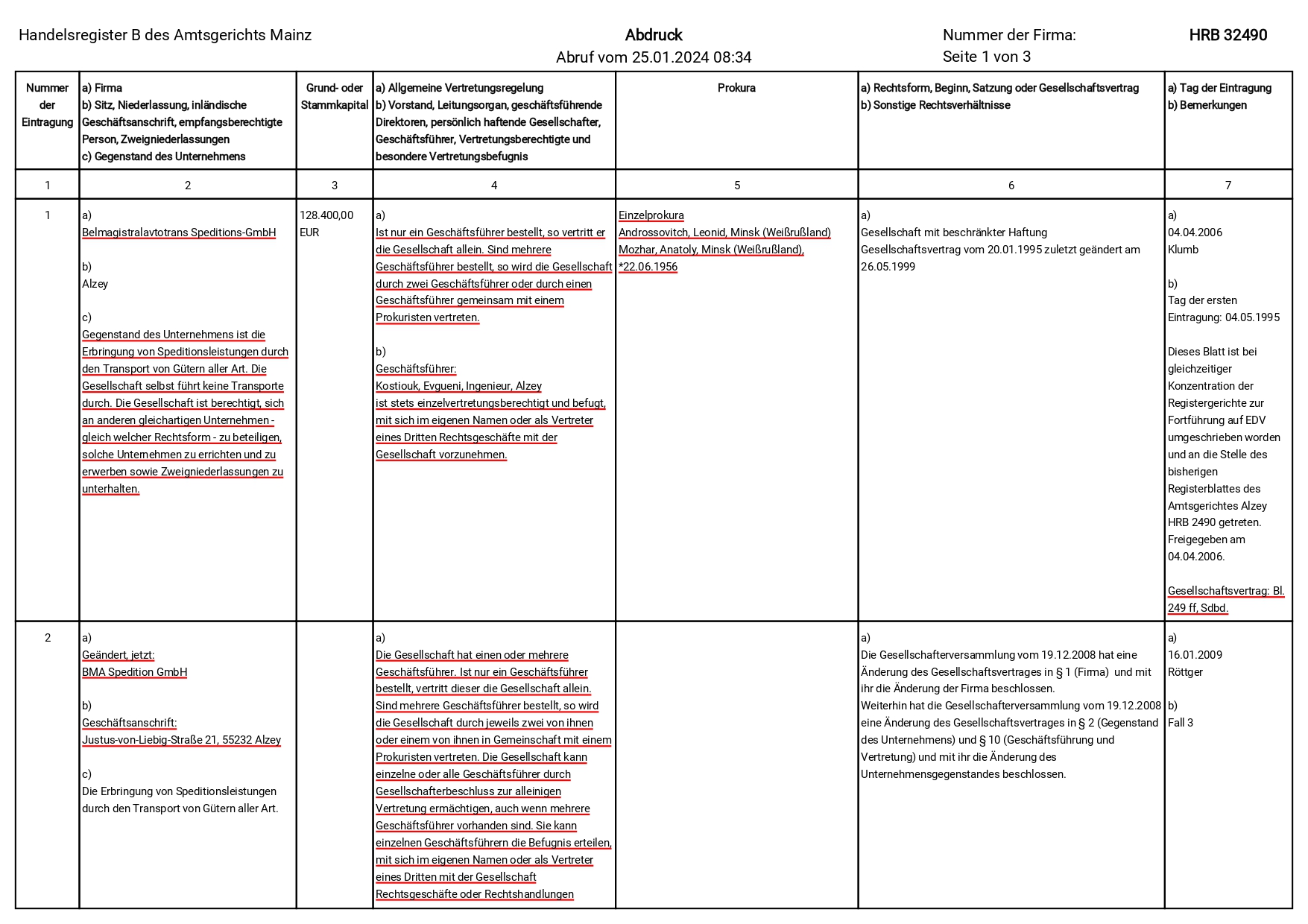
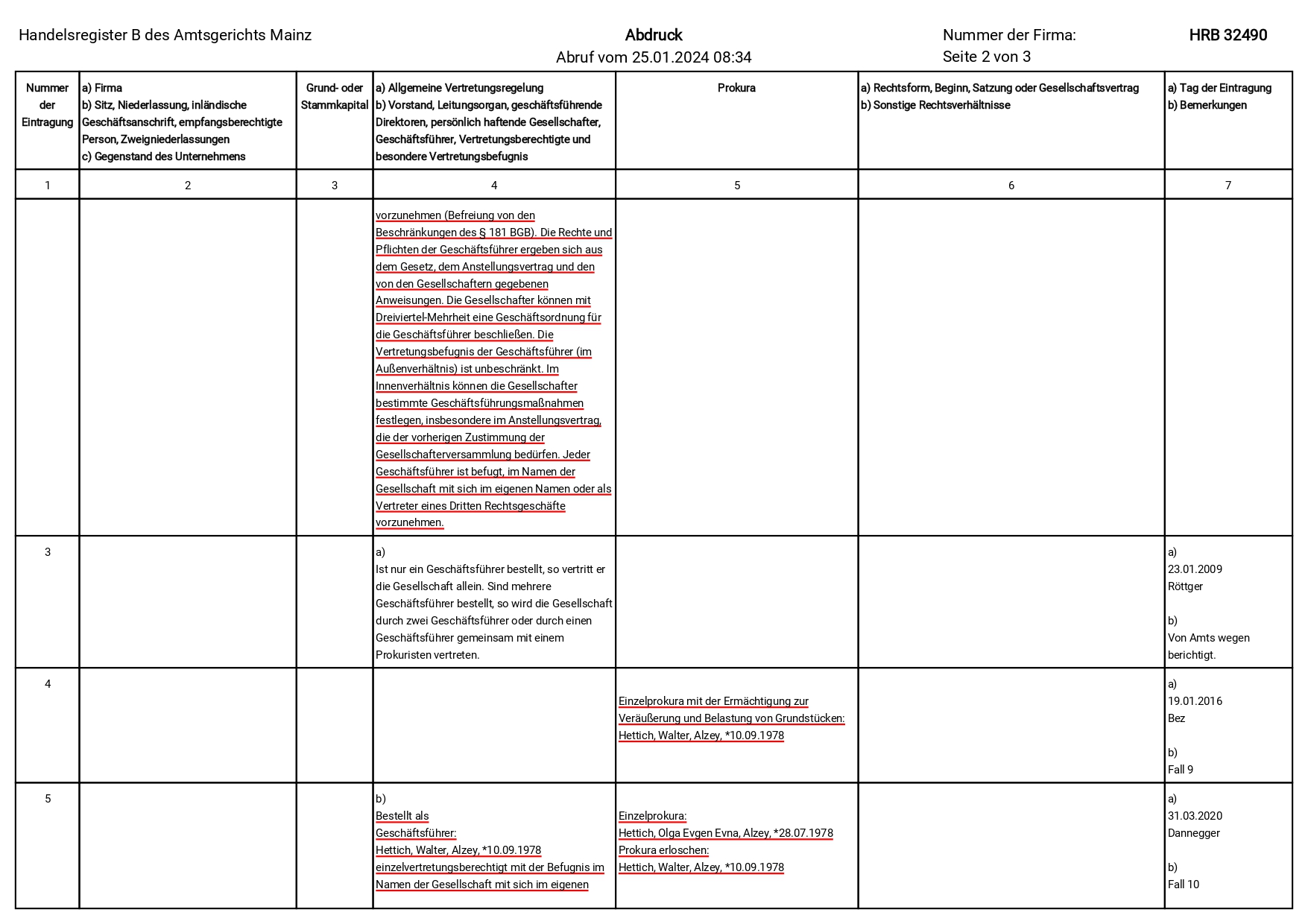
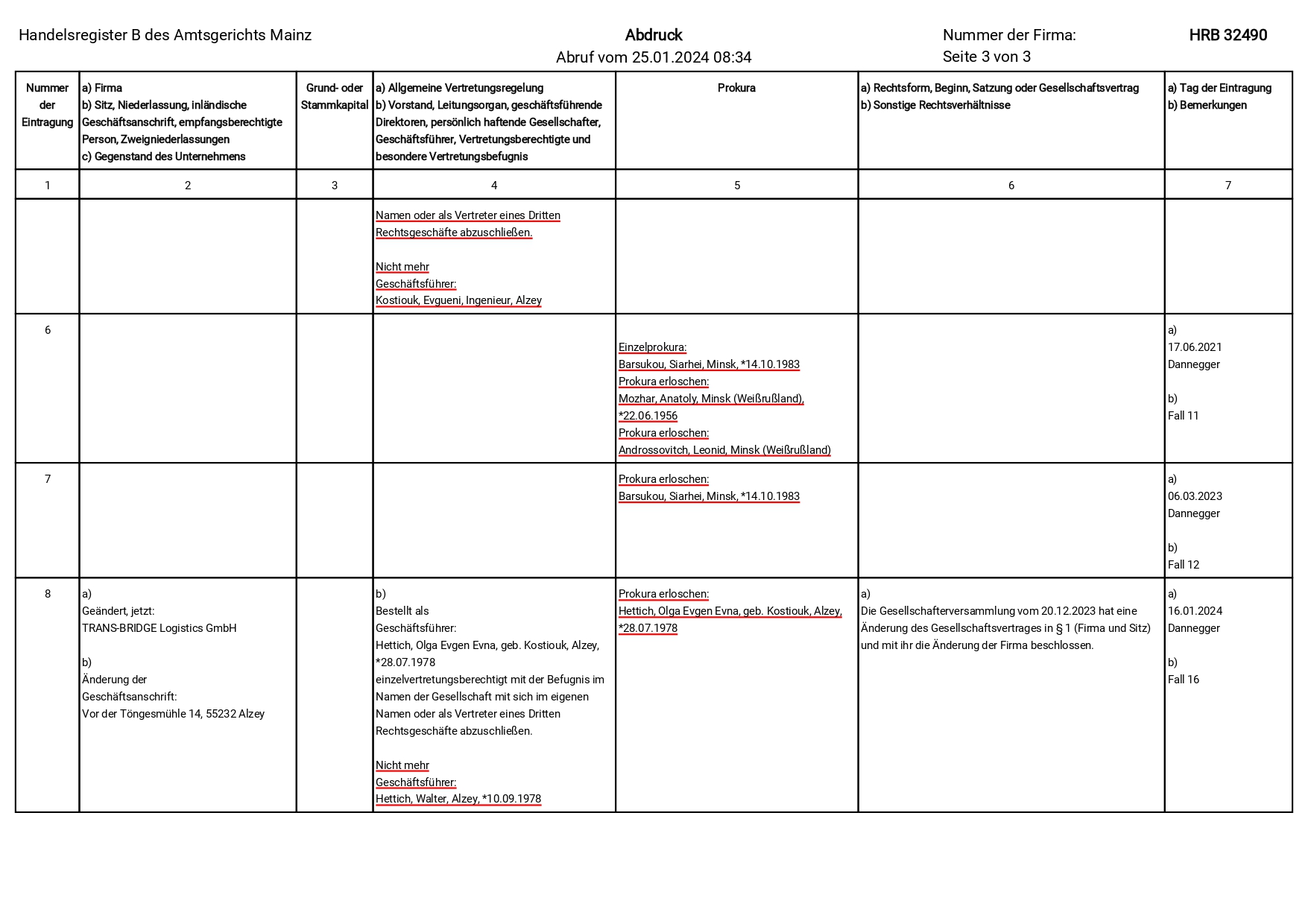
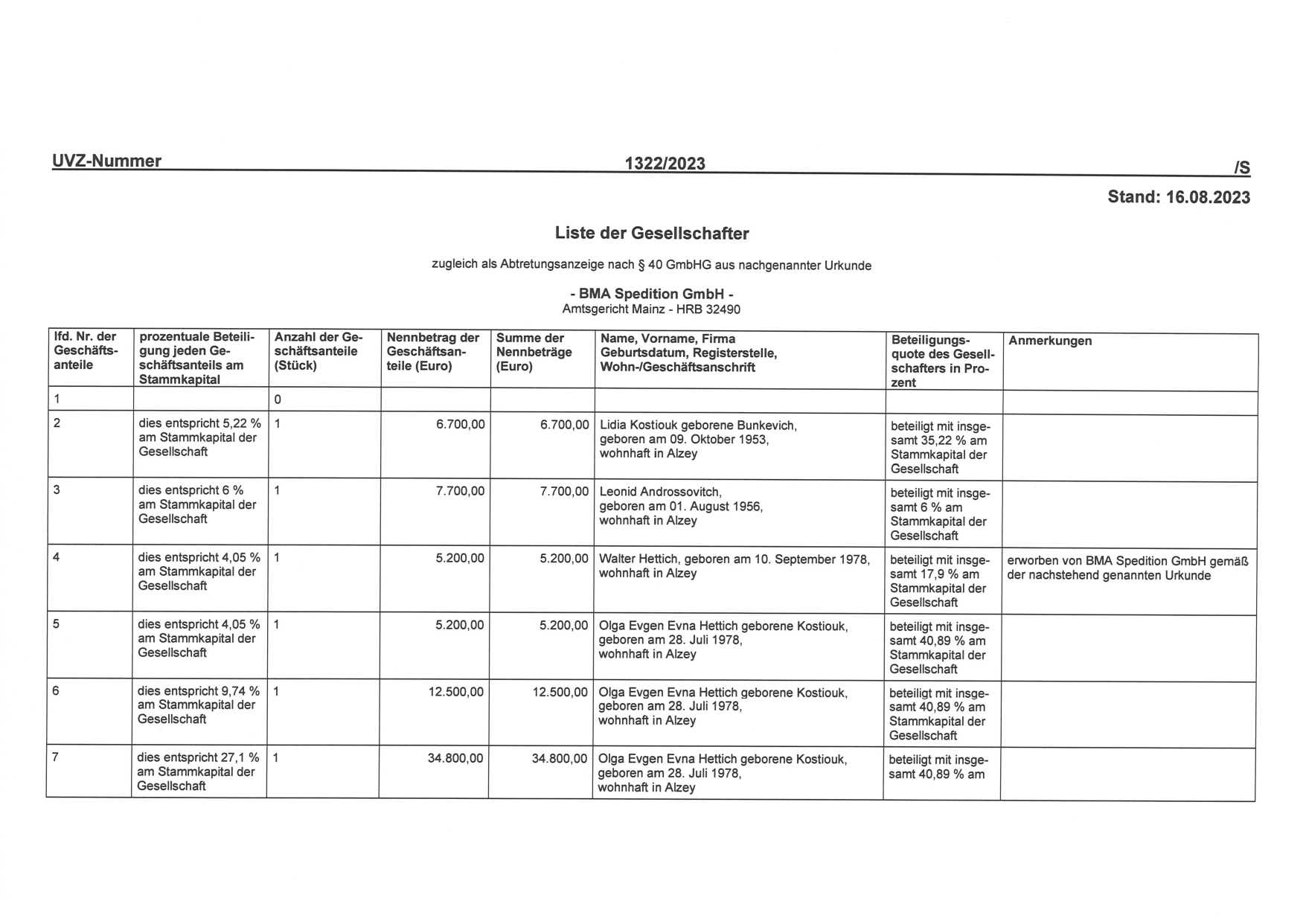
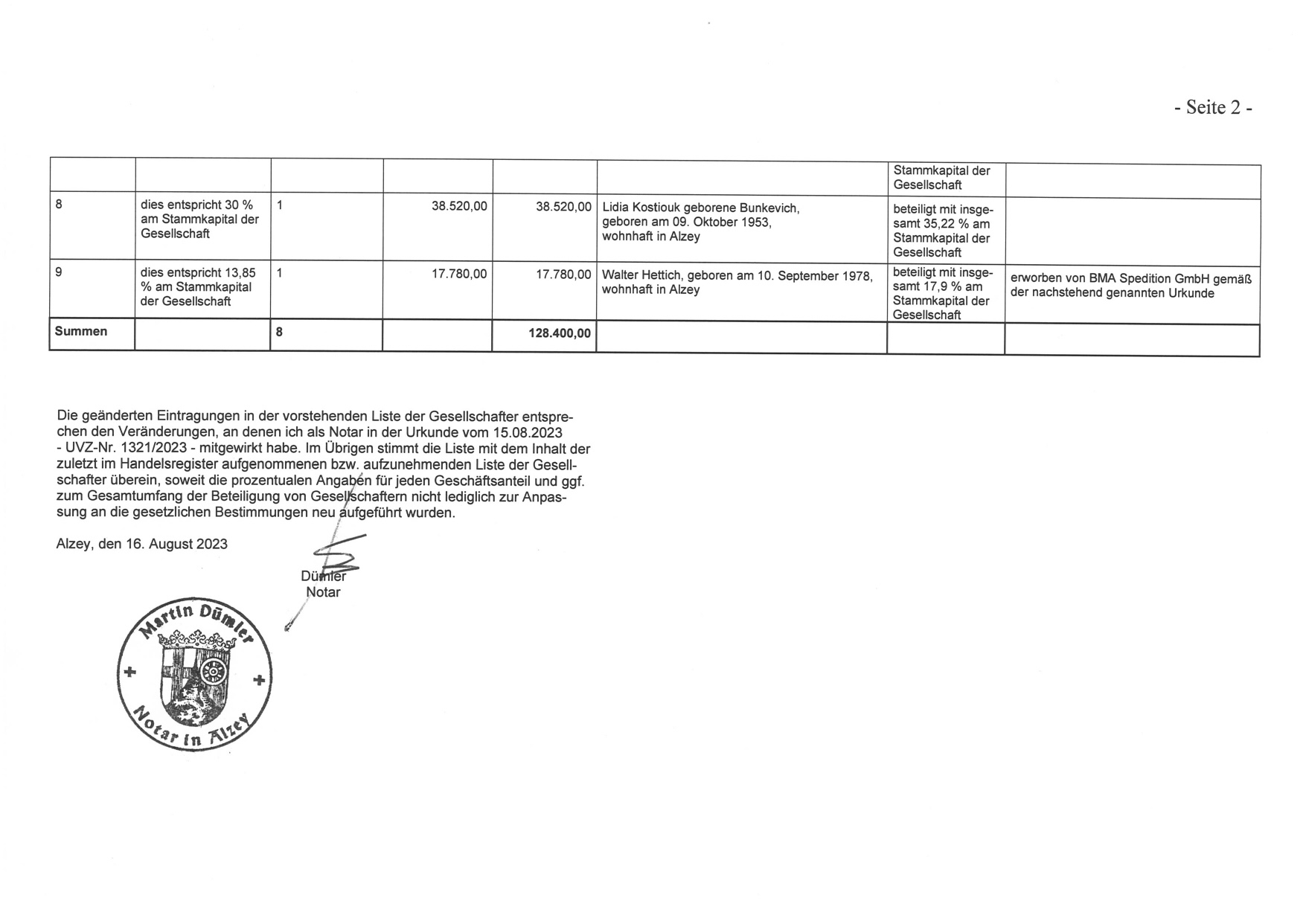
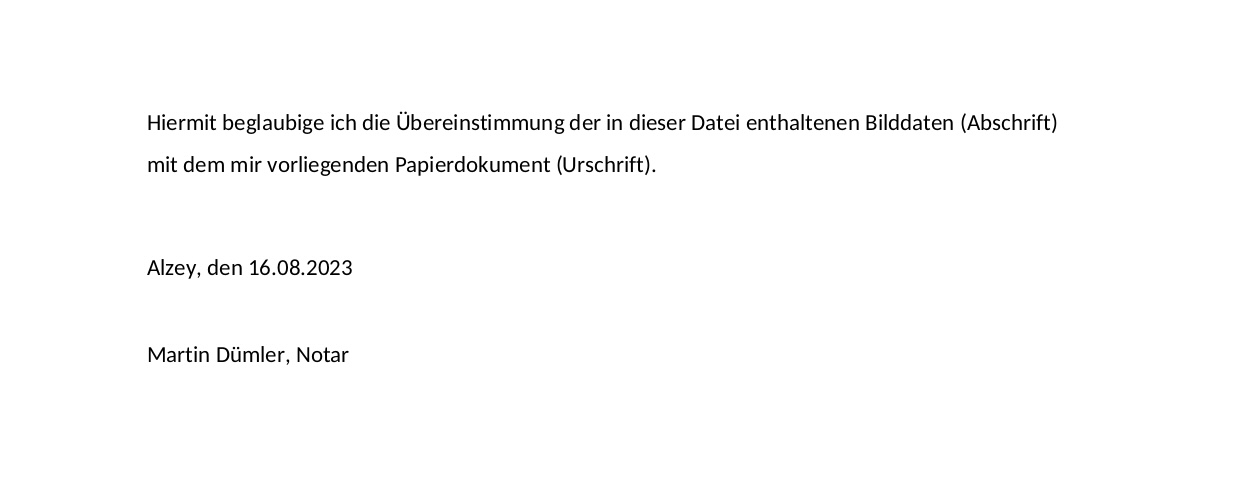
Basically, during the year preceding the imposition of large-scale sanctions, the Belarusian government supplied Russia with military equipment through BelMagistralAvtoTrans and Belarusian Yauhen Kastiuk, while the war in Ukraine was ongoing.
REPLACEMENT OF PERSONNEL
But even after all the sanctions were imposed, supplies to OSTEK continued. As late as last August, the EU prohibited the export of equipment for semiconductor and microchip production to Belarus. OSTEK transported modern equipment to Russia through intermediaries while these restrictions were not in force. Let's take a closer look at them.
An industrial area on the outskirts of Minsk. Just two kilometres from the Minsk ring road and 15 kilometres from the motorway to Moscow is the office of a nondescript company called Tefida. The company has been selling spare parts for road construction equipment for more than a decade, but the war in Ukraine has opened up new opportunities.
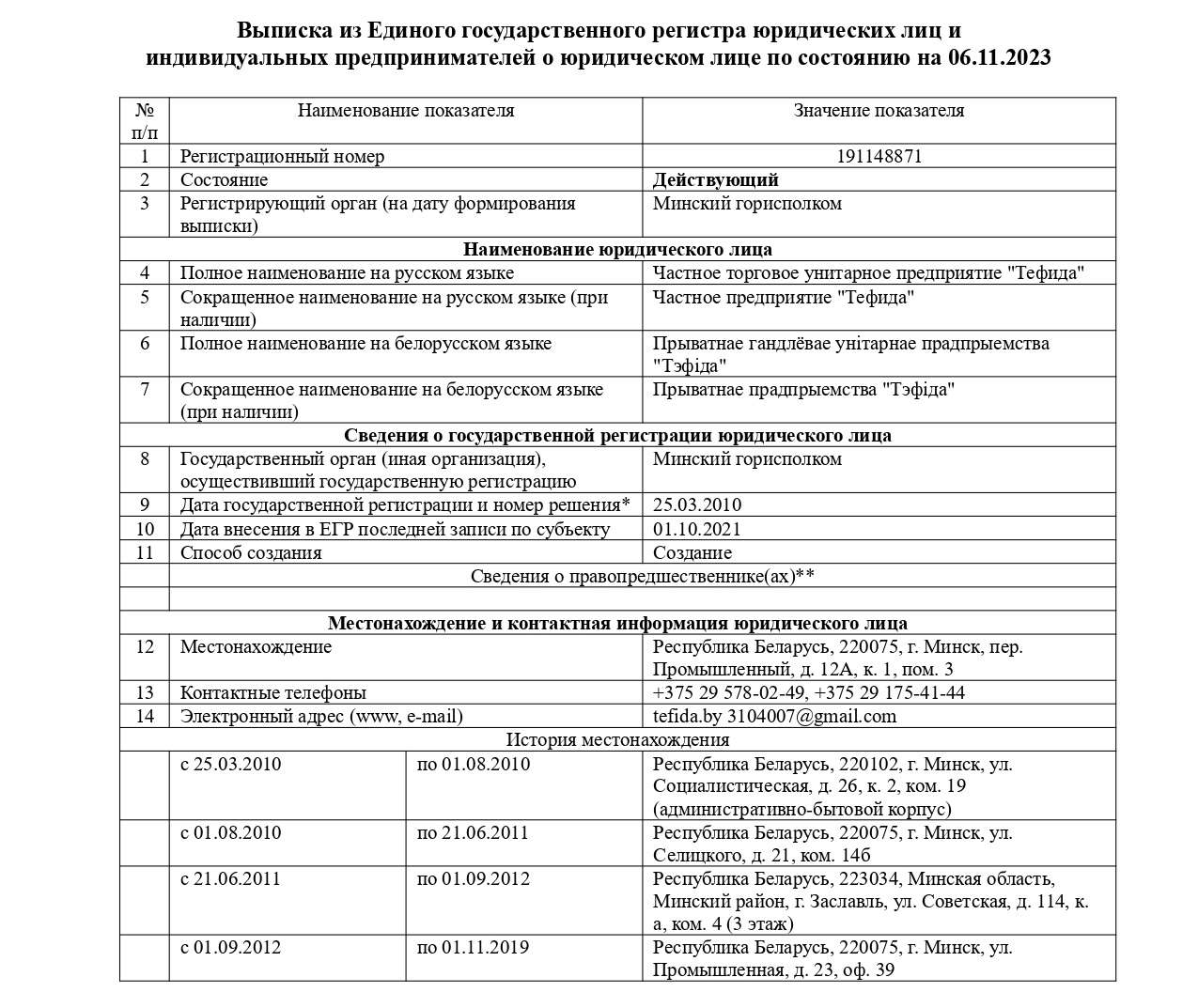
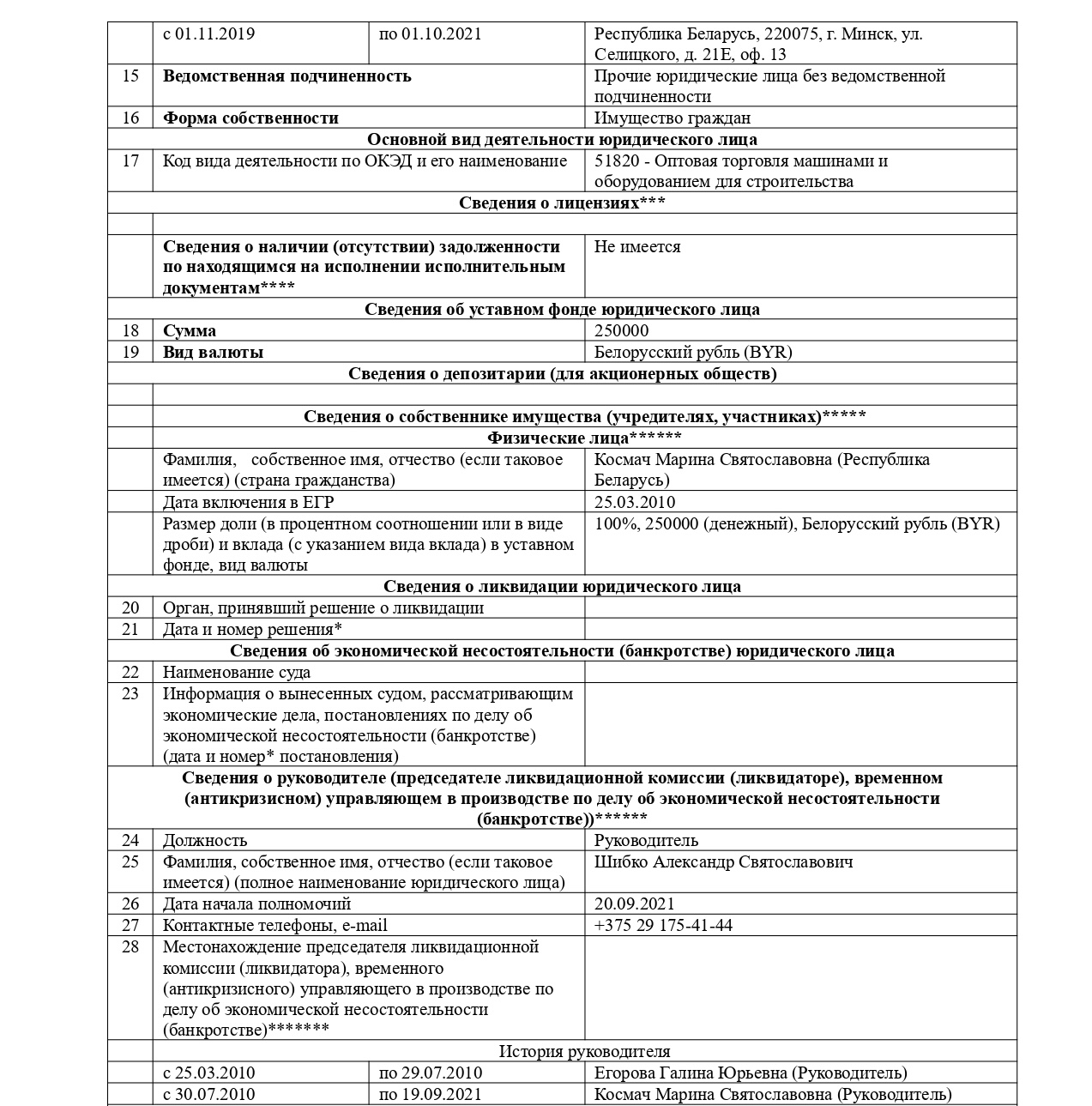
According to customs data, the Belarusian company Tefida, on behalf of the Kazakh company KBR-Tekhnologii, supplied equipment for the production of electronic components worth $5 million to the OSTEK group and related companies between March and August 2023. This included equipment produced by German ERSA, Czech PBT, and Singaporean NUTEK. For example, a Nutek NTM 530WSL 1000 workstation and a Nutek NTM 410L 500 automatic machine were found in the customs declaration. These are the models that OSTEK-SMT has been contracted to supply to the Moscow Institute of Chemistry and Mechanics as part of the modernisation of its production facilities.
Tefida had already supplied equipment to OSTEK on behalf of Kazakh company KBR-Tekhnologii in 2022. The volumes were much smaller, consisting of only six shipments worth $700,000.
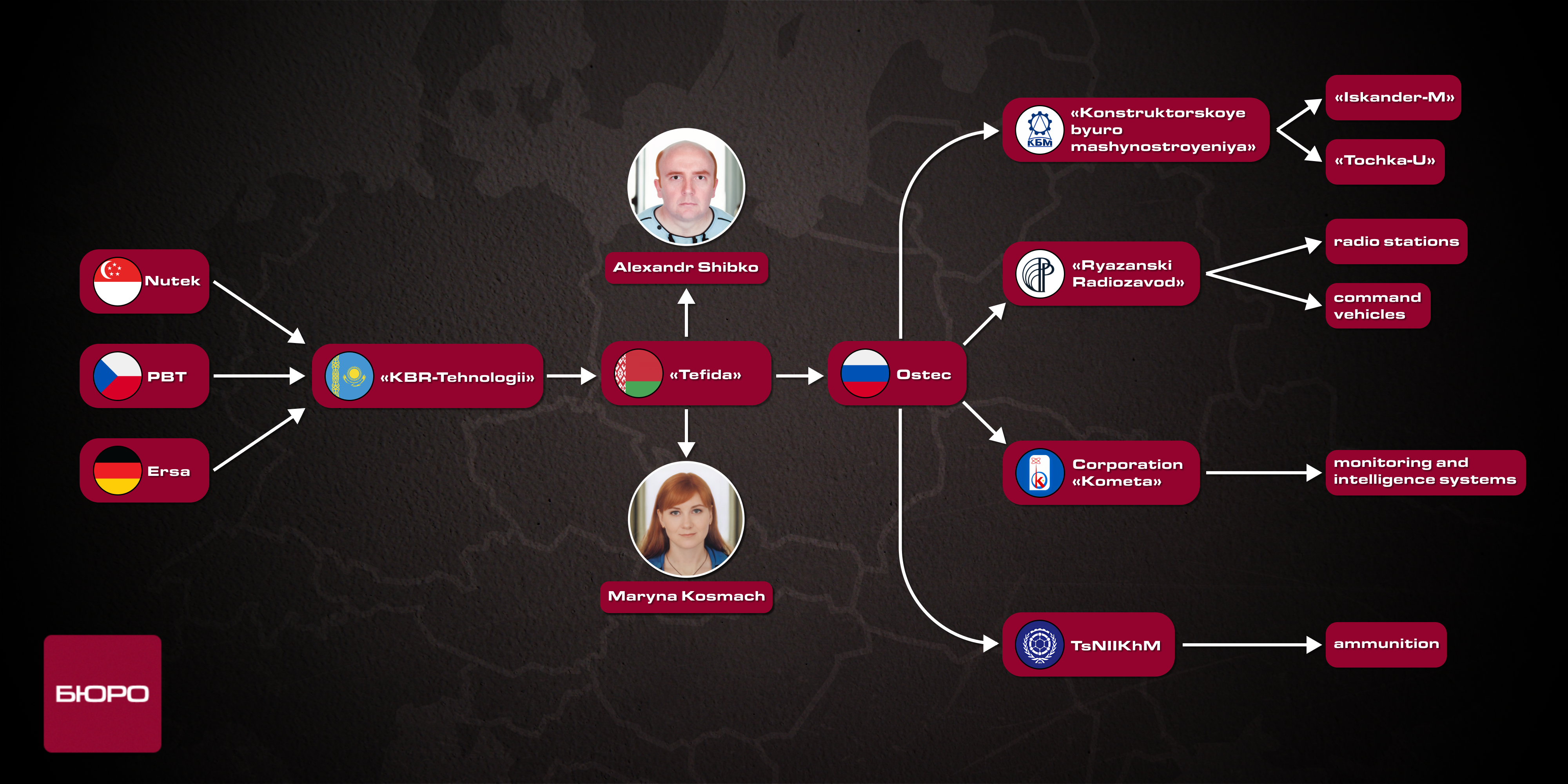
So who is behind the equipment vendors? Tefida is owned by Belarusian Maryna Kosmach and managed by her brother Aliaksandr Shybko. Shortly after the start of the invasion of Ukraine – in May 2022 – the Kazakh company KBR-Tekhnologii appeared in Petropavlovsk.
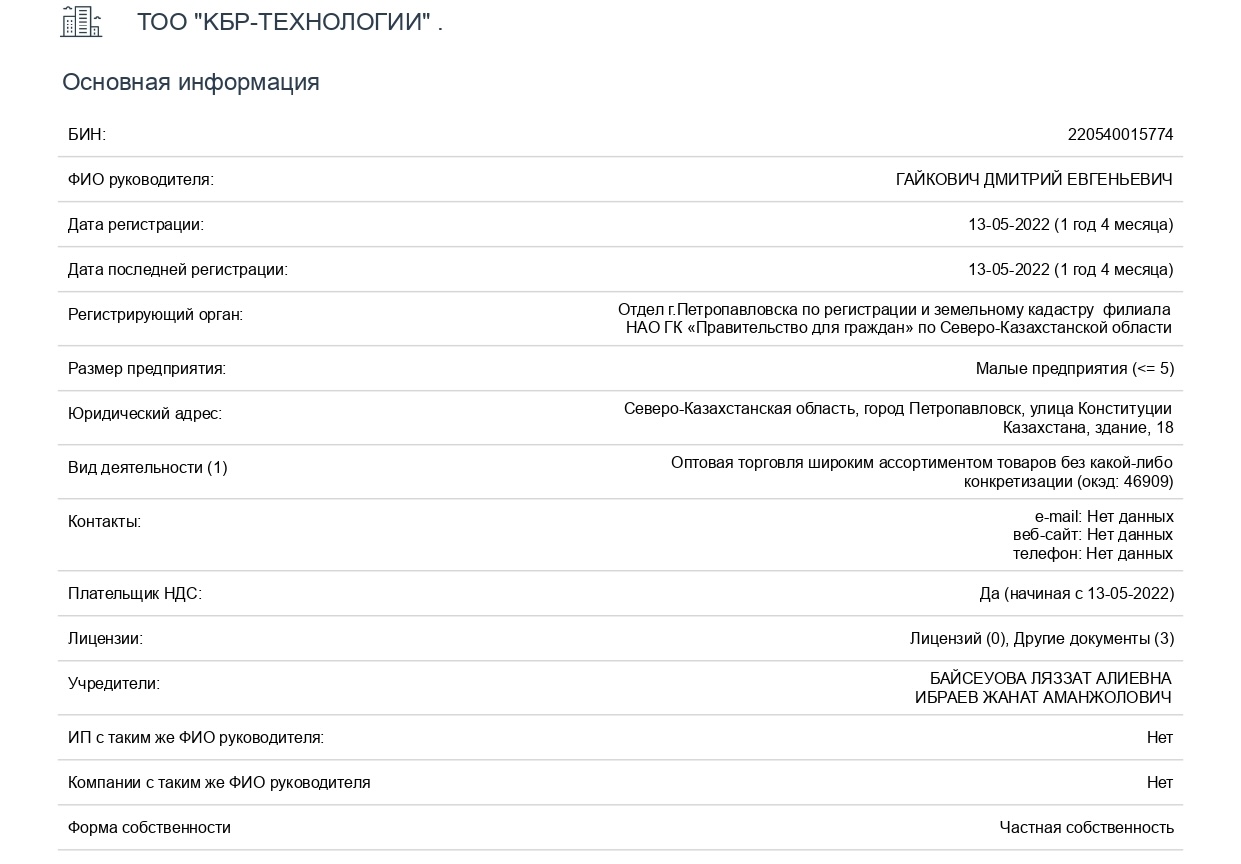
The company does not have a website, email, or phone number. But thanks to our colleagues at the Kazakh publication Vlast, we managed to find out that KBR-Tekhnologii is linked to the main owner of BMA Spedition, Olga Hettich. Olga Hettich is the daughter of the former director of the Belarusian state-owned company BelMagistralAvtoTrans and the former main beneficiary of Inter-Trans, Yauhen Kastsiuk. The same one that supplied the Russian company OSTEK with European equipment, until sanctions threw a curve. Full circle.
See what this link looks like. Olga Hettich is the majority owner of the Smolensk-based company Mirtrans. In Kazakhstan, the company established a subsidiary, KBR-Trans. The company is run by a certain Zhanat Ibrayev. He is also a co-founder of KBR-Tekhnologii.
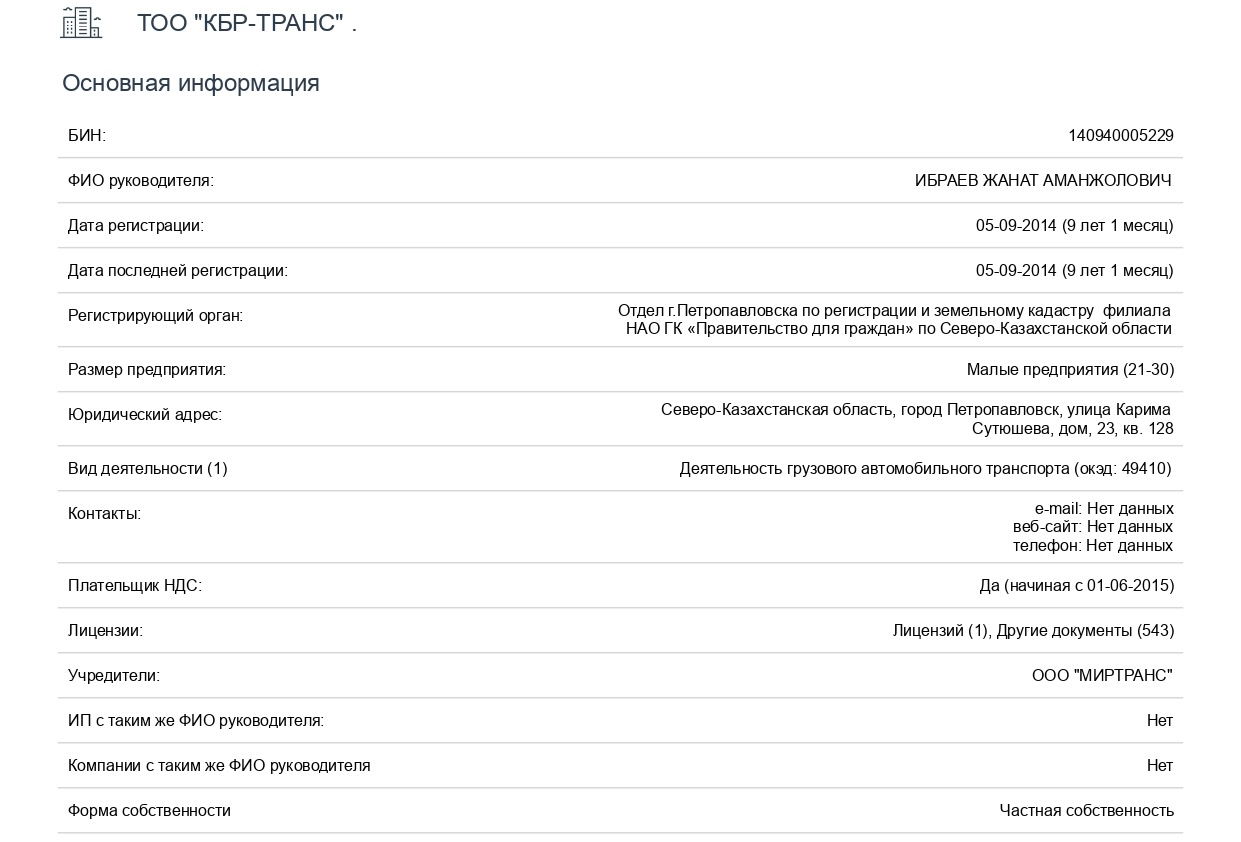
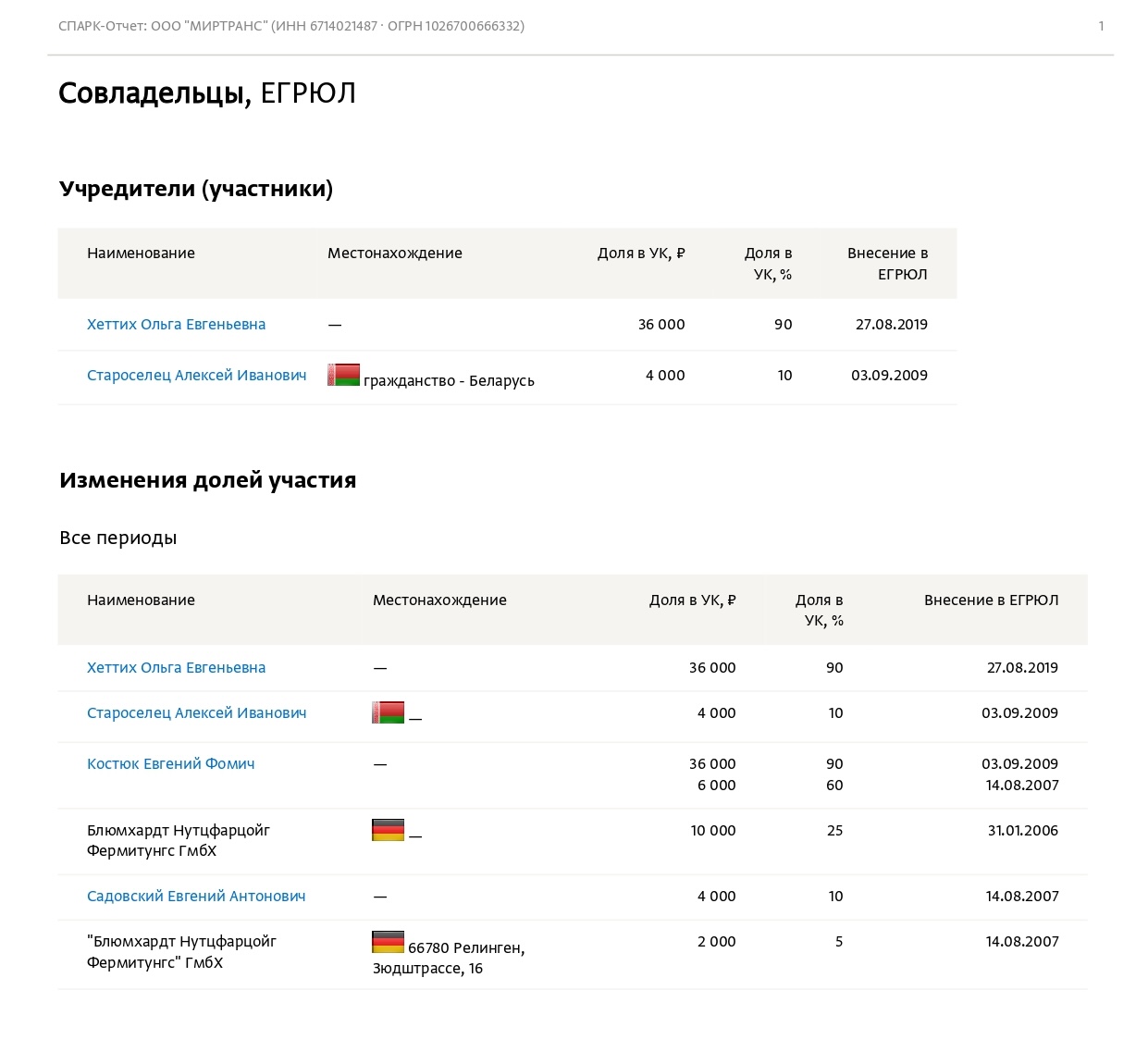
Here is another interesting fact. The address where the domain name KBR-SMT is registered is the KBR-Trans office. But we found no such company in the Kazakh register. However, information is available on the website of Nutek's European office. KBR-SMT is listed there as a Kazakh dealer of the Singaporean company. The Nutek equipment went to Russia on behalf of KBR-Tekhnologii, evading sanctions.
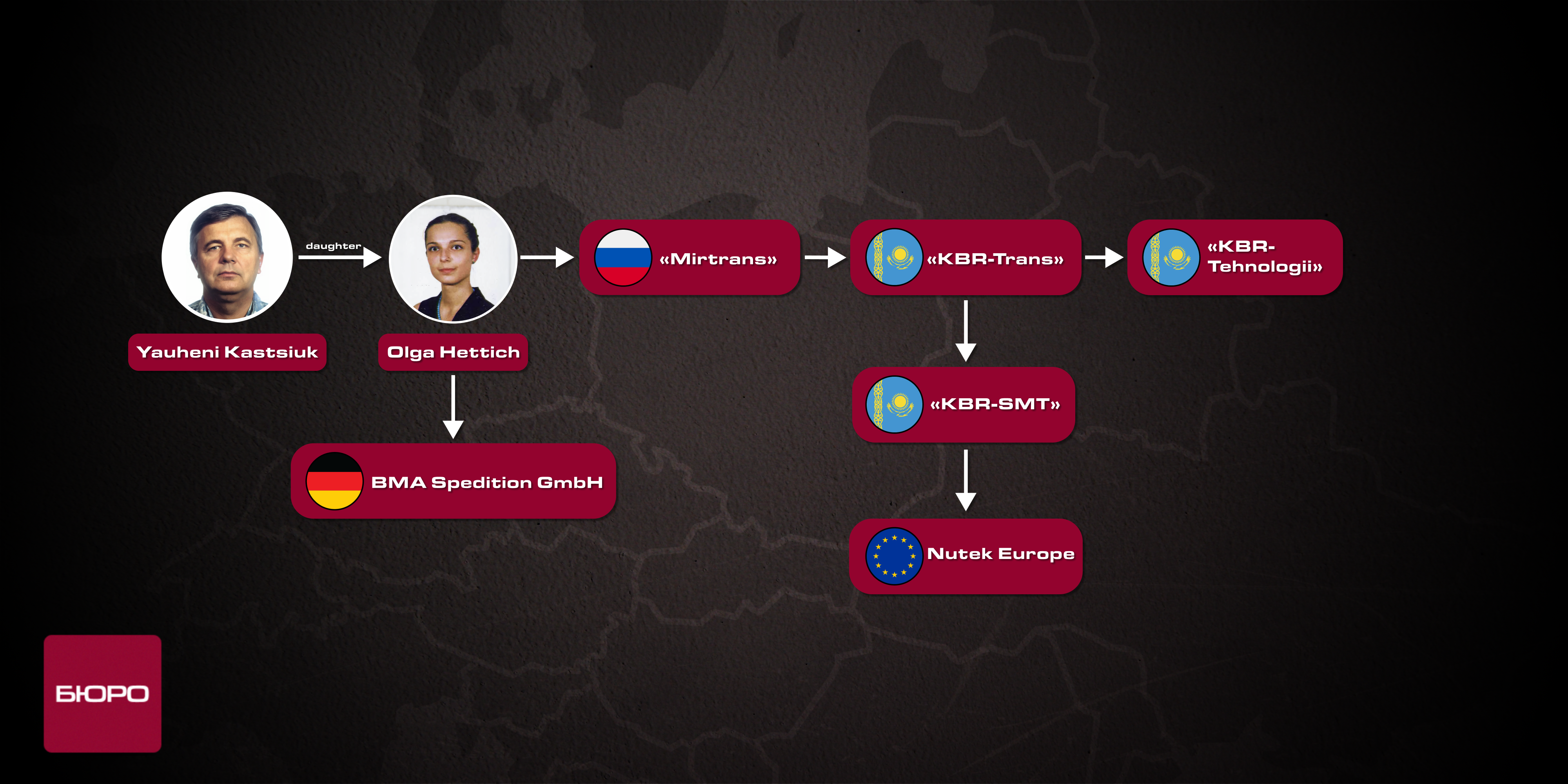
KBR-Tekhnologii is not an accidental link in this chain. The thing is that Kazakhstan is not subject to Western sanctions. To avoid the suspicion of European customs authorities, the suppliers register the goods with a company in Petropavlovsk, but the cargo does not arrive there; it is carried via Minsk and ends up in Moscow. Such a system is known as a false transit. Sanctioned cargoes have been intercepted by Lithuanian customs in this way on more than one occasion.
WHO'S TO BLAME?
PBT and ERSA manufacturers deny supplying their equipment to Russia to circumvent sanctions. The German company said that after the war broke out in Ukraine, it cancelled all orders from Russia and stopped delivering immediately.
"We have discontinued this business despite understanding that we are leaving some good customers and losing good turnover", explained Rainer Krauss, Executive Vice President of ERSA GmbH.
However, he claims that five Chinese manufacturers are now copying ERSA equipment. These machines are reaching Russia through various transit routes.
"During my visit to the Nepcon exhibition in Shenzhen in early October [2023], Chinese manufacturers expressed their excitement about the promising business opportunities with Russia. The market has been occupied by Chinese manufacturers", Krauss said.
Nutek did not respond to a request for comment. BMA Spedition declined to put Olga Hettich on. Their lawyer has advised against making comments to the media while the sanctions proceedings are ongoing. Evgeny Lipkin, head of OSTEK-SMT, did not respond to calls and requests for comment. Director of KBR-Trans and co-owner of KBR-Tekhnologii Zhanat Ibrayev declined to comment.
Maryna Kosmach, the owner of Tefida, agreed to meet with us. Following the 2020 protests in Belarus, she left her home country due to the risk of criminal prosecution. She was then granted refugee status in Lithuania. She told Buro that she was not aware of the company's activities.
"You are breaking new ground for me", said Kosmach about supplying equipment to Russia. According to her, she remains the nominal owner of the company, but the business is run by her brother.
We reached Aliaksandr Shybko by phone. He initially denied that Tefida had any involvement in the supply of sanctioned equipment to Russia, but later said that the company had had dealings in the equipment.
"I did not sign any consignment notes for any sanctioned goods, and they also cleared the goods themselves. We were simply a temporary storage warehouse. We didn't supply anything", Shybko said.
But we have documents showing that KBR-Tekhnologii not only authorised Tefida to store the cargo on the territory of Belarus but also deliver it to Russia. Tefida received more than 82,000 euros from KBR-Tekhnologii for its services.

Electronic component manufacturing. Source: vk.com/ostecsmt
While the Western equipment was on its way to Russia, the Ukrainian military shot down Russian Orion and Forpost drones. Some photos show that aerial bombs developed at the Moscow Institute of Chemistry and Mechanics were attached to them. The OSTEK Group of Companies has equipped several military-industrial enterprises with modern equipment, including through the assistance of Belarusian intermediaries.
"Russia rarely uses the Forpost and Orion drones anymore because they can be taken down by our air defence system. Countries that collaborate with the aggressor will provide them with weapons, ammunition, and equipment. Russia is running out of reserves and Putin has Lukashenko by the balls", said Yurii Ihnat, spokesman for the Ukrainian Air Force.
At the beginning of the war, the Lukashenko regime made Belarus' territory available for Russia's full-scale invasion of Ukraine. This made possible the occupation of Bucha, where the Russian military massacred civilians. Aleksandr Lukashenko repeatedly assured that Belarusian soldiers would not enter Ukrainian territory. But, as we see, we have a different kind of soldier at work in our country. During the war, they help to equip the Russian war machine with modern equipment. According to customs data, Russia imported more than $27 million worth of dual-use goods with a high risk of being used in the military industry via Belarus last year.
Добавления по теме
Experts explained the importance of investigating the circumvention of sanctions and uncovered the volume of gray exports to Russia that pass through Belarus
